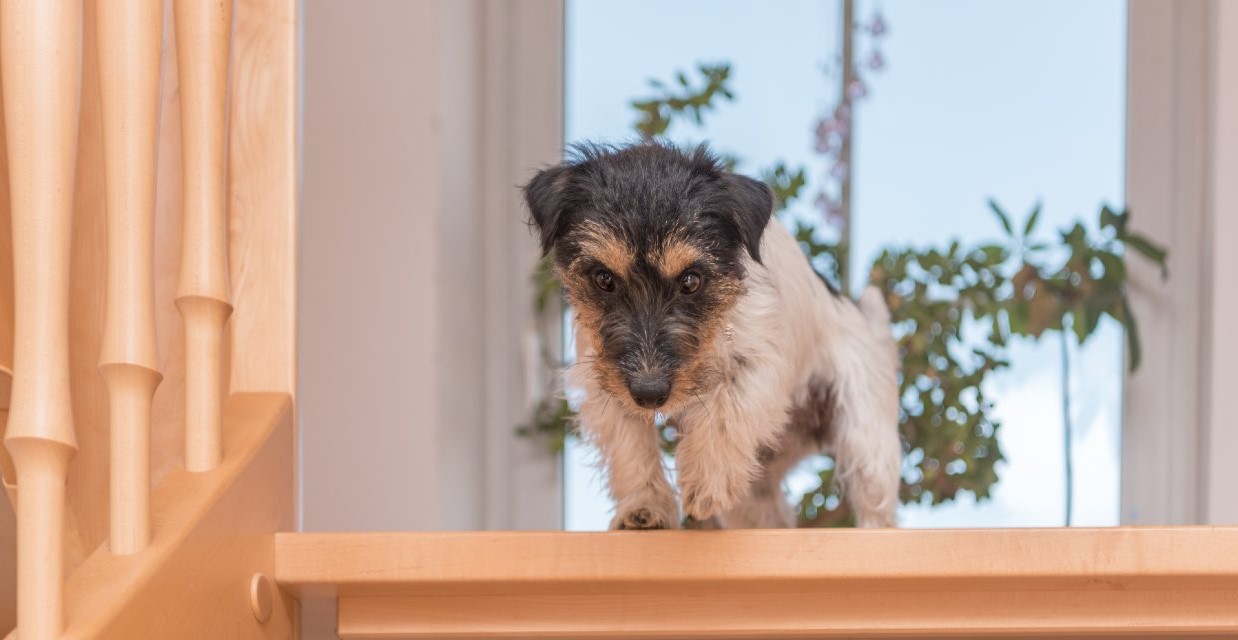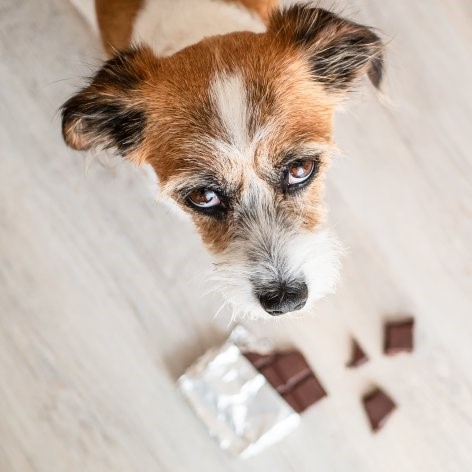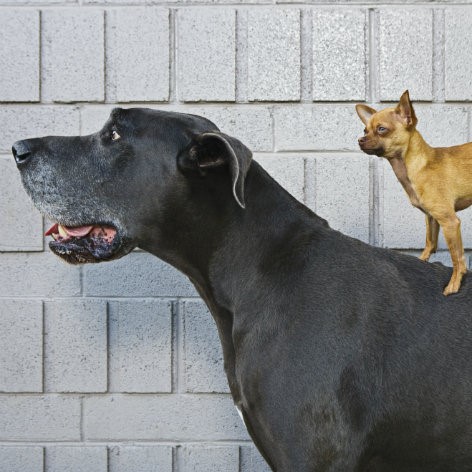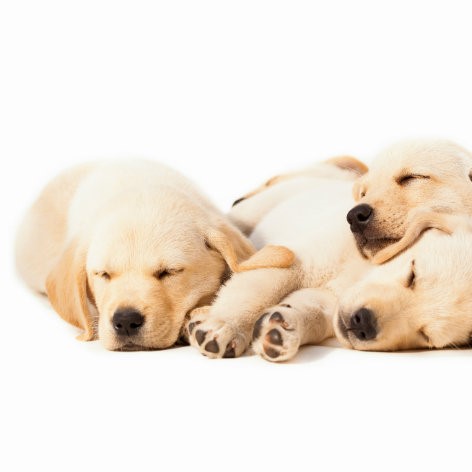Fear is a normal response in puppies and a survival mechanism in all animals. Although some puppies may initially be fearful of certain people, places or things they encounter, upon repeated exposure to these things puppies generally habituate and their fear reduces and eventually stops.
Some puppies are very bold and may appear to not be fearful of much at all.
That said, it’s important to acknowledge that all puppies experience several “fear periods” in their life. The first fear period occurs from 8 to 11 weeks and the second fear period happens between about 6 to 14 months of age.
Things That a Puppy can be Scared of
Although puppies can show fear of a variety of different things, depending on their genetic predisposition, personality and past experiences, there are some common things for a puppy to be scared of. These include:
- Unfamiliar people
- Other dogs
- Loud noises (e.g. thunderstorms and fireworks)
- The vacuum cleaner
- Power tools
- The lawn mower
- Cars and trucks
- Slippery surfaces
- Going up or down stairs
- Car rides
The first Fear Period (8 to 11 weeks)
During the first fear period it’s very important to avoid traumatic experiences as these can have a lasting impact on the way your dog views the world. Close supervision and ensuring all the experiences your puppy has with people, other dogs, the vet and new environments and inanimate objects during this time are as positive as possible can help avoid fear-related problems down the track.
The second Fear Period (6 to 14 months)
The second fear period typically coincides with a growth spurt in your puppy with smaller breed puppies entering this fear period sooner than larger breed puppies. During this time, you may notice your puppy shows an increased intensity in their fear response. It’s even more important to take things slowly and work on teaching your puppy to associate everyday things and situations in a positive light.
Allowing your puppy to take their time rather than forcing them to get over their fear will help them feel more comfortable and move past their fear quicker.
How to Reduce Fear in your Puppy
If you notice your puppy is fearful of something, whether it’s strangers, other dogs or inanimate objects, you can use a combination of desensitisation and counter-conditioning to help your puppy learn they need not be afraid. This means gradually exposing your puppy to the “scary” thing at a distance where they’re comfortable and simultaneously pairing the “scary” thing with your puppy’s favourite treats.
As the training progresses, the distance is gradually reduced if your puppy is succeeding. With time and repetition, this training helps to change your puppy’s emotional response over time from a negative association (due to fear) to a positive one.








